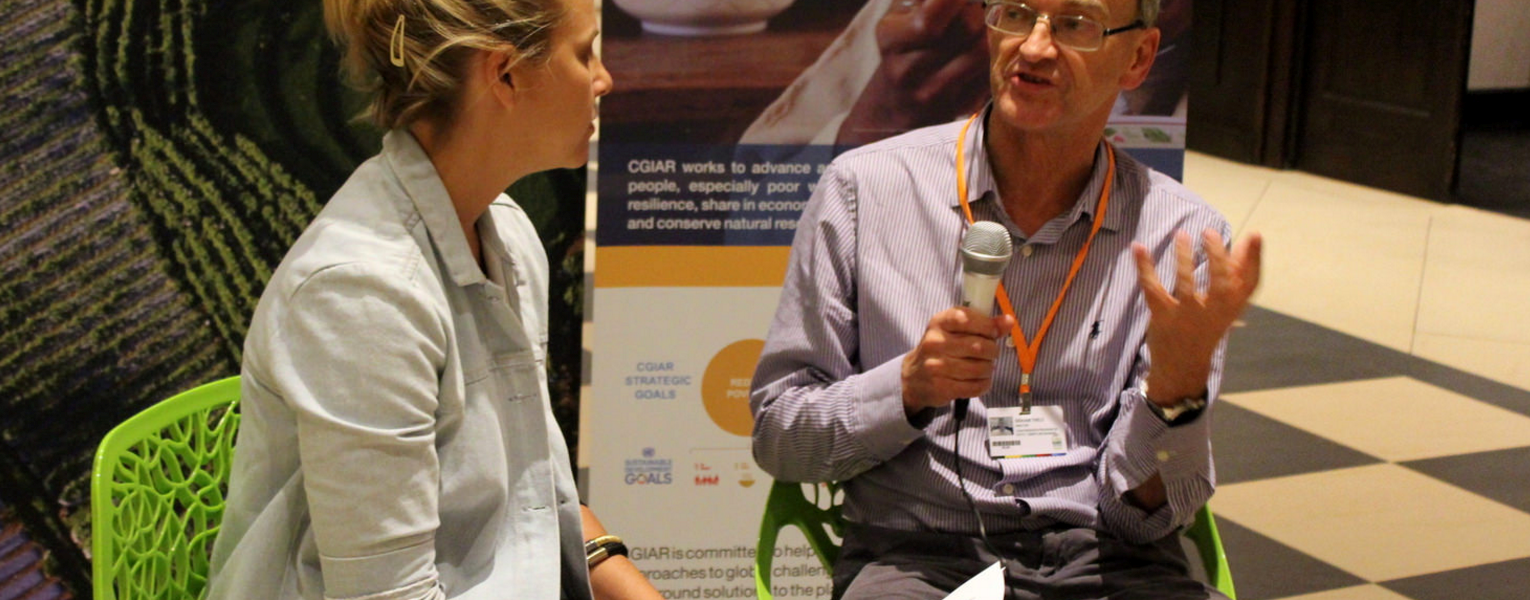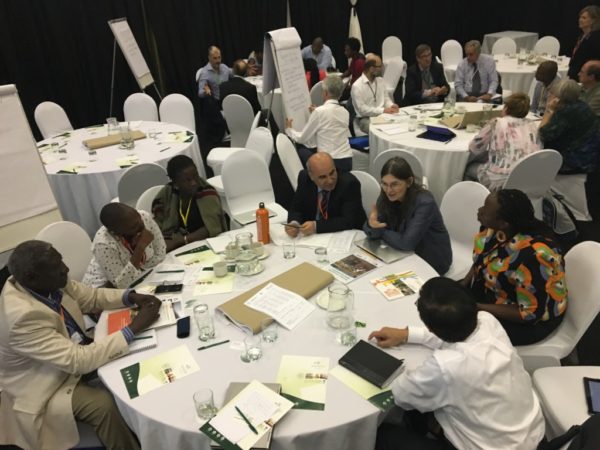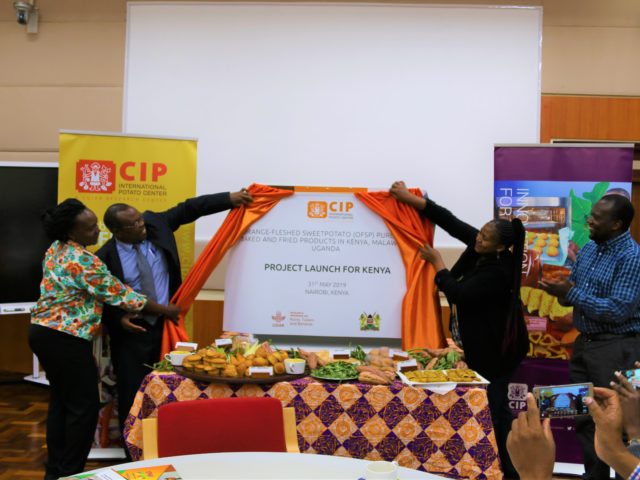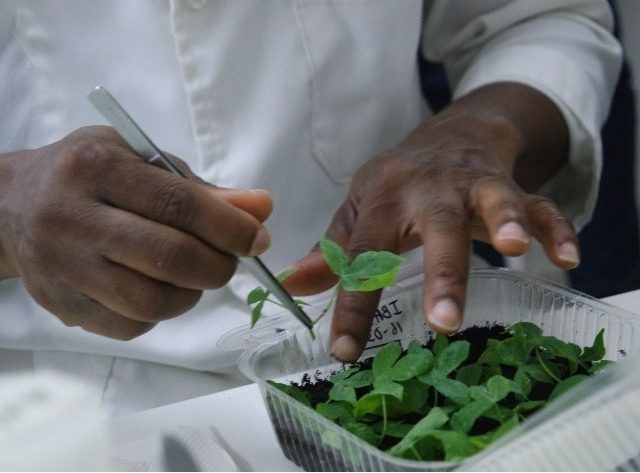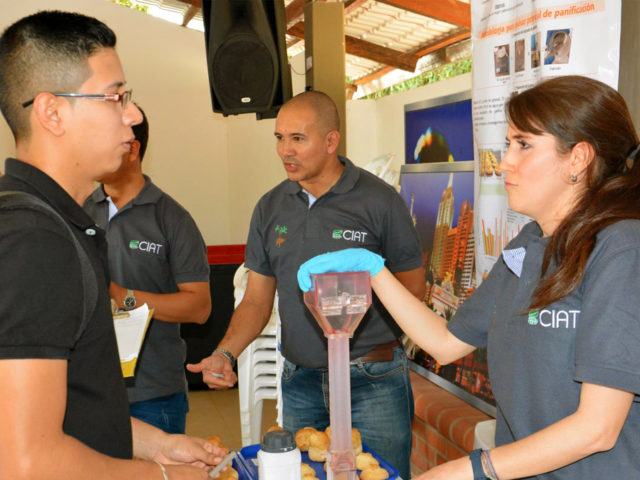Sara Quinn, Regional Communications Specialist, International Potato Center
What does it mean to ‘leave no one behind’ in the world of agricultural research for development? This was the question on the minds of those of us that represented the CGIAR Research Program on Roots, Tubers and Bananas (RTB) at the Third Global Conference on Agriculture for Development (GCARD3), organized by the Global Forum on Agricultural Research (GFAR) and CGIAR and hosted by the South African Agricultural Research Council, in Johannesburg, South Africa.
GCARD was created to promote effective, targeted investment and to build partnership, capacities and mutual accountabilities at all levels of the agricultural system in order to meet the needs of resource-poor farmers and their communities. This, the third GCARD meeting, was a clear demonstration of how the global network is working to achieve these goals and was a confident step forward in progressing the global agenda on agriculture.
So, what role do root, tuber and banana crops have to play in this global discourse? And how can agricultural research and development initiatives ensure that the benefits they provide are far reaching, leaving no one behind?

The CGIAR booth at GCARD3 was a great opportunity to see how the CGIAR was engaging with the GCARD3 process. Photo by Liya Dejene, CGIAR Consortium.
RTB crops including banana, cassava, potato, sweetpotato, yams and other root and tuber crops are excellent sources of nutrition and income for over 200 million farmers. They are mostly produced, processed and traded locally, making them less vulnerable to price changes on the international market. But as we learned at GCARD3 the world is changing fast with multiple global challenges including climate change and the need for healthier diets for an urbanizing population. Agricultural research for development needs to take this on board.
For RTB and the entire CGIAR network, the GCARD process presents an opportunity to develop the new, vibrant and inclusive partnerships we need to address these challenges and contribute to sustainable development. Mark Holderness, the Executive Secretary of the Global Forum on Agricultural Research (GFAR) captured this sentiment to go forward together in his closing statement that the conference has shaped a set of practical actions that “we can proudly take to the SDG review process.” This message was echoed by Frank Rijsberman, CEO of the CGIAR Consortium and keynote speaker at GCARD3 in the Huffington Post article on getting the research response to hunger right: is it our last shot?
Graham Thiele, Program Director of RTB, joined the conference theme ‘Showcasing results and demonstrating impact’: “It was a great opportunity for RTB, to build connections, to find similarity in the work we do and build a common framework. We have a framework for seed, technical constraints and social dimensions, and we are working together to add real value to what is already being done.”
Graham played a key role as rapporteur in the Theme 2 group and helped formulate new collective actions proposed in the GCARD3 Outcome Statement, including: to “create a platform to harmonize agricultural indicators linked to SDGs in order to improve collective action for impact” and to “contribute to national measurements of progress towards SDGs and build national capacity for integrated measurements” engaging with stakeholders including farmers, youth and women. These GCARD3 collective actions link with RTB’s vision for Phase II and shared accountability for development outcomes with our partners.
Likewise, colleagues from the International Potato Center (CIP), Adiel Mbabu and Tom Remington, participated in the thematic area of scaling up – from research to impact. Tom shared CIP’s experience on scaling up orange fleshed sweetpotato in Malawi through the DFID-led SUSTAIN project and which provided fantastic fodder for continued conversation throughout the three days of discussions. Adiel reflected that CIP is “…looking at scaling up and supporting policy environment to unitize orange fleshed sweet potato and tackling vitamin A deficiency, looking at a basket of nutritious crops and building capacity to pilot scaling up – and trying to understand the processes that lead to impact at scale.”
Summing up a pledge agreed by the 500 delegates to integrate international and national priority setting and work in partnership, Mark Holderness said: “It’s down to all of us to go away and deliver.”
What’s next?
RTB plans to do just that. With over a billion people living on less than US$ 1.25 per day; with more than 800 million acutely or chronically undernourished and with around 2 billion people suffering from micronutrient deficiency or ‘hidden hunger’ it is essential that we at RTB find ways to connect local and national action with global challenge and remain focused on ensuring our research is relevant and has impact.
GCARD3 brought together over 500 people from 83 countries from scientists, researchers and policy makers to farmers, young people and entrepreneurs. It was an opportunity to debate, discuss and challenge each other on the big ideas concerning agriculture, food security and nutrition. So what’s next? For RTB, these discussions do not end here. The key challenges highlighted at GCARD will continue to drive our work at RTB as we strive to contribute to the provision of nutritious diets for all; to improving the sustainability of agri-food systems in the face of increasingly complex global challenges and to scale up our research initiatives to contribute to the CGIAR wide goal to bring 100 million people in the world out of poverty by 2030.
At RTB, we are committed to working to increase the productivity of smallholder farmers with new crops and better ways to farm, increasing their resistance to environmental and economic shocks and we will continue to play our role in this global network of organisations to improve livelihoods, nutrition and food security around the world.
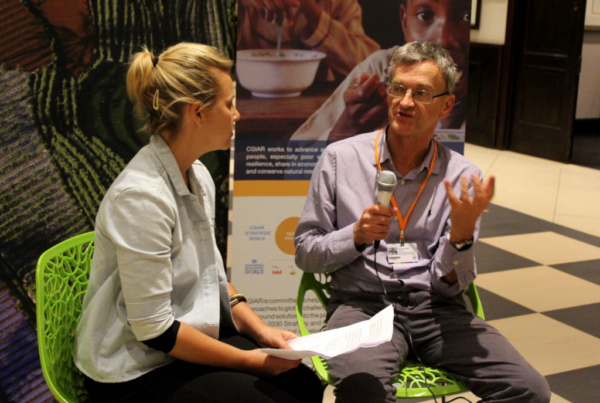
Graham Thiele, Director of the CGIAR Research Program on Roots, Tubers & Bananas being interviewed by Sara Quinn at GCARD3. Photo by Liya Dejene, CGIAR Consortium.
For further information about RTB at GCARD 3
RTB participated at GCARD3 via the CGIAR booth, through media coverage and via the live CGIAR Periscope interview series. In his interview, Graham Thiele, RTB Program Director discussed new cassava processing technologies, native potatoes and reconfiguring value chains to provide nutritious RTB food to growing urban populations especially in Africa. And Adiel Mbabu, Regional Director of the International Potato Center SSA discussed a range of topics including: gender, scaling up and innovation.
